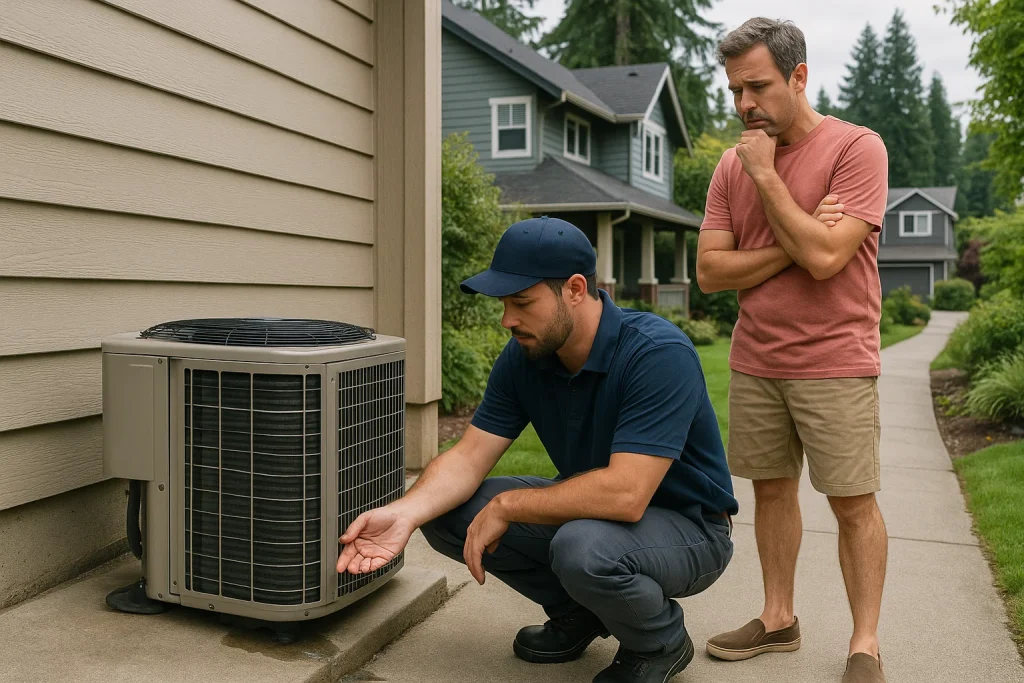Your air conditioner works hard to keep your home cool and comfortable, especially during the hottest months of the year. One of the most critical components of that system is refrigerant, the chemical responsible for absorbing and transferring heat out of your home.
But when refrigerant starts to leak, many homeowners either don’t notice or underestimate the seriousness of the issue. Unfortunately, ignoring a refrigerant leak can lead to costly system damage, higher energy bills, and harmful environmental impacts. Let’s take a closer look at what refrigerant does, why leaks happen, and the real dangers of letting the problem go unaddressed.

What Is Refrigerant and Why Is It So Important?
Refrigerant is a chemical compound (commonly R-410A in newer systems or R-22 in older ones) that cycles through your AC system, absorbing heat from inside your home and releasing it outside. Without the right amount of refrigerant, your air conditioner simply can’t cool properly.
Refrigerant is contained within a closed-loop system. This means you should never “run out” of refrigerant unless there’s a leak. If your AC needs a recharge every year or two, that’s a red flag that there’s an underlying issue that needs to be addressed—not just topped off.
How to Spot a Refrigerant Leak
Some common signs that your system may have a refrigerant leak include:
- Warm air blowing from your vents
- Longer cooling cycles or inability to reach set temperatures
- Higher-than-normal energy bills
- Hissing or bubbling sounds near the indoor or outdoor unit
- Frozen evaporator coils or visible ice on the unit
If you notice any of these signs, it’s crucial to act quickly. Leaks will not fix themselves, and refrigerant loss will continue to worsen over time if left unaddressed.
The Risks of Ignoring a Refrigerant Leak
1. Major System Damage
When refrigerant levels drop too low, your AC system can no longer absorb heat efficiently. This leads to increased strain on the compressor, one of the most expensive components to replace. A failing or burnt-out compressor often results in a full system replacement—an expense that could have been avoided with early leak detection and repair.
2. Poor Comfort and High Utility Bills
Low refrigerant levels force your system to work harder and longer to cool your home. This not only shortens the lifespan of your AC but also drives up your energy bills. Over time, what seems like a minor leak can turn into a major expense through both poor performance and inefficiency.
3. Environmental Harm
Refrigerants are greenhouse gases. When they leak into the atmosphere, they contribute to ozone depletion and global warming. Older refrigerants like R-22 are particularly damaging and are now being phased out due to their environmental impact. Even newer, more eco-friendly refrigerants can still pose environmental concerns if not properly contained.
Don’t Just Recharge: Fix the Leak
Some homeowners are tempted to simply pay for recharging refrigerant when cooling performance drops. But without repairing the leak itself, this approach is like filling a leaky tire without patching the hole. Not only is it a temporary fix, but it also leads to repeat service calls, wasted refrigerant, and ongoing system stress.
Contact Scaran today to schedule an appointment with our professionals for your AC repair.












